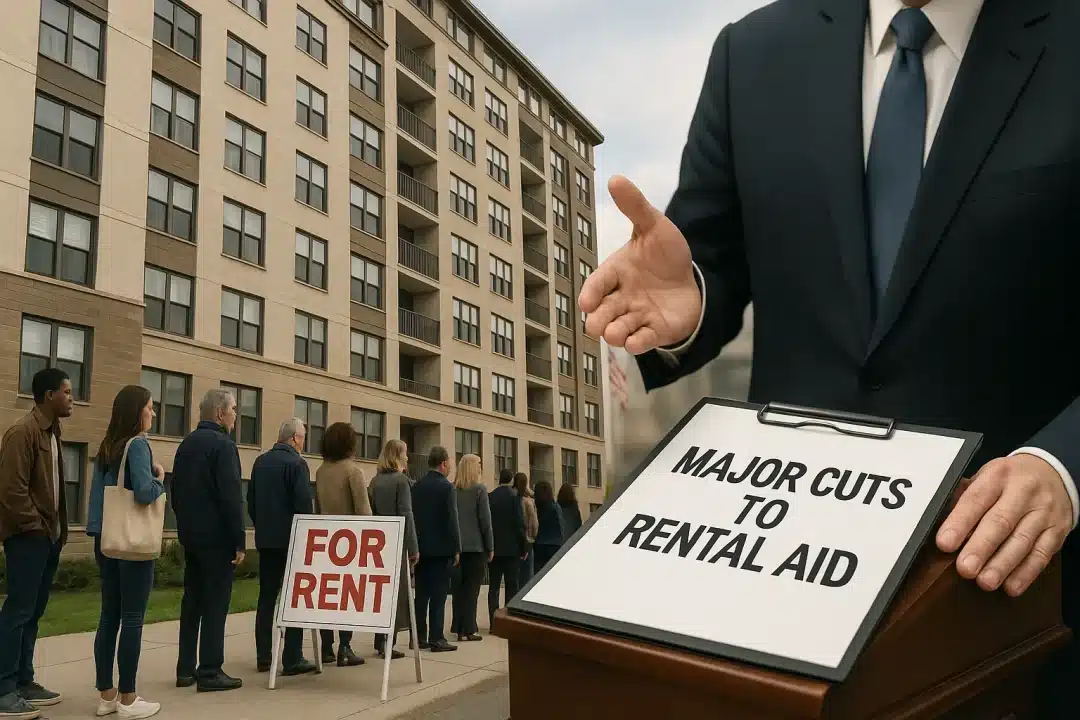
For hundreds of families in Vermont, the lifeline of Section 8 housing assistance is being severed. Facing flat federal funding and a brutal rental market, local housing authorities have been forced to stop issuing new rental-assistance vouchers. In a devastating turn, they have even withdrawn vouchers from more than 100 families who were in the middle of searching for an apartment.
Section 8 Crisis Looms: Not All Bad Though
This local crisis in Vermont is a stark preview of what could become a national catastrophe. Specifically, a new federal budget proposal for 2025 threatens to dismantle the country’s most effective anti-poverty housing program. As a result, this could leave millions of Americans facing eviction and homelessness.
However, in a sign of the program’s increasingly fragmented state, some areas are moving in the opposite direction. For example, in Miami-Dade County, the housing authority just opened its waitlist for Section 8 vouchers. This has created a frantic, online-only rush for a limited number of spots.
Ultimately, this patchwork of despair and hope highlights a growing uncertainty. This directly impacts the more than 2 million low-income households who depend on the program. In fact, many of them are older, disabled, or single-parent families just trying to keep a roof over their heads.
The National Threat: A 43% Proposed Cut to Housing Aid
The 2025 federal budget proposal calls for a staggering 43% reduction in federal housing assistance. The Section 8 voucher program is squarely in the crosshairs. The plan would eliminate the current federal system managed by the U.S. Department of Housing and Urban Development (HUD). In its place, the proposal introduces a “State Rental Assistance Block Grant.”
While federal officials claim this gives states “greater flexibility,” critics warn it’s a massive rollback of support. Consequently, the change could leave up to 1.6 million families without their existing vouchers.
“This would be the most significant rollback of federal housing support in decades,” said Diane Yentel, president of the National Low Income Housing Coalition.
The On-the-Ground Reality: A System Already Failing
You don’t have to wait for the budget to pass to see the impact. In Vermont, for instance, the crisis is already here.
- The Burlington Housing Authority announced it needs to drop subsidies for nearly 400 households this year. This is necessary to close a $2.3 million budget gap.
- Meanwhile, the Vermont State Housing Authority, the state’s largest issuer of vouchers, said it would have to shelve nearly 500 subsidies.
- Combined, more than 1,000 Vermonters will not get the rental subsidies they were counting on this year.
A Glimmer of Hope: Limited Waitlists Open
In stark contrast, Miami-Dade County Housing and Community Development began accepting online-only applications on June 9. These applications are for its Section 8 Project-Based Voucher waitlists. However, the application window is only open through June 20. It serves specific populations including older people, disabled individuals, and formerly homeless residents. This rare opening underscores how critical it is for renters to monitor local announcements, because opportunities can appear and disappear quickly.
What Renters and Applicants Can Do Right Now
The federal budget must still pass through Congress. Therefore, this gives advocates and concerned citizens time to act. If you are currently receiving or seeking Section 8 assistance, here are several recommended steps:
- Contact Your Elected Representatives: First, express your concerns about the proposed cuts to federal housing assistance.
- Monitor Your Local Housing Authority: As the Miami example shows, waitlists can open unexpectedly. For this reason, check your local housing authority’s website frequently for updates.
- Stay in Touch: In addition, if you already have a voucher, maintain regular contact with your caseworker. You should also ensure all of your information is up to date to avoid missing critical notices.
- Explore Local Assistance: Finally, look into other local options as a backup plan. This can include nonprofit rental aid programs or legal help services.

